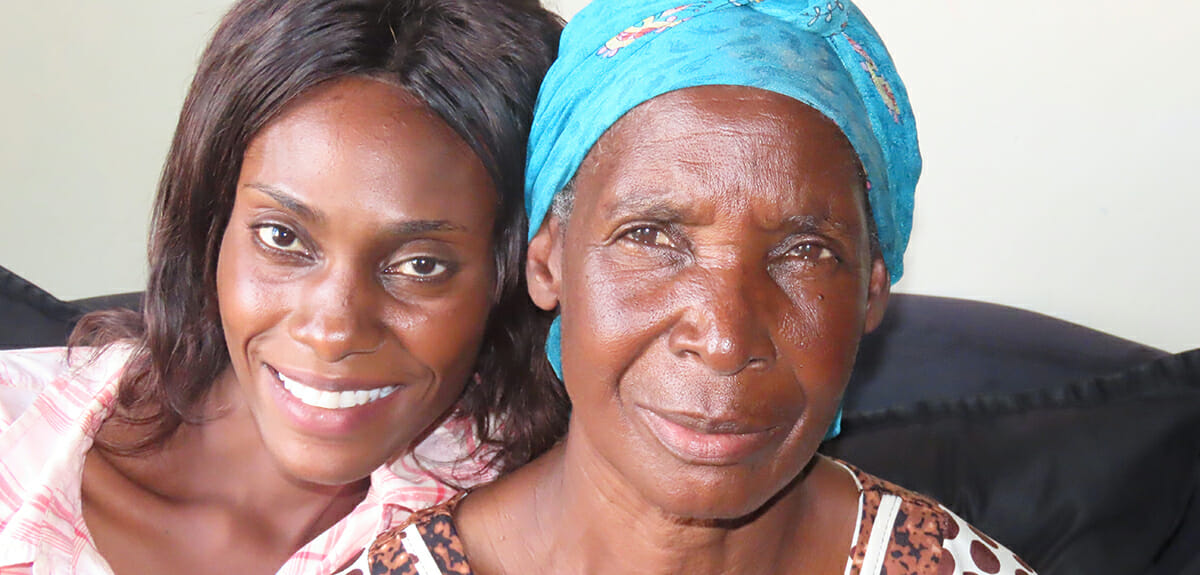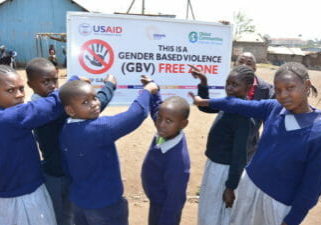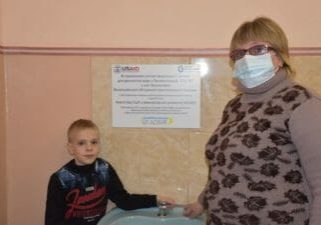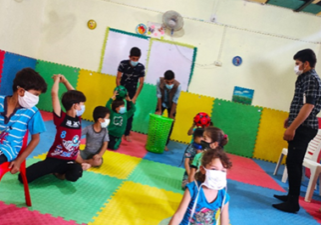News > Blog
Preventing Unnecessary Cervical Cancer Deaths in Zambia
Published 12/26/2020 by globalcommunities

Worldwide, women and girls are needlessly suffering from a disease that is preventable and curable. Cervical cancer has historically been overlooked by health systems, but the COVID-19 pandemic has exacerbated this issue and left more women underserved.
Each year, more than 260,000 women, almost 90 percent from low- and middle-income countries, die from cervical cancer because they are poor and live in areas where there is little to no access to adequate health systems. Only about 20 percent of women in low- and middle-income countries have ever been screened for cervical cancer compared with more than 60 percent in high-income countries. Zambia is estimated to have the second-highest cervical cancer rate in the world.
The Cancer Diseases Hospital in the capital city of Lusaka is the country’s only cancer treatment facility and sees more than 200 cancer patients daily. With limited resources, health care providers are faced with the challenge of prioritizing those who are already in advanced states of disease progression. The lack of early intervention has real consequences. The International Agency for Research on Cancer, within the World Health Organization, estimates that Zambia recorded 2,994 cases of cervical cancer in 2018, with 1,839 women dying of the disease in the same year.
To strengthen the Zambian government’s efforts towards eliminating cervical cancer, Project Concern International (PCI), a Global Communities Partner, scaled up the cervical cancer screening project in the Zambian Defense Force (ZDF). In 2018, in partnership with the U.S. government’s President’s Emergency Plan for AIDS Relief (PEPFAR) through the U.S Department of Defense HIV/AIDS Prevention Program (DHAPP), PCI worked with the ZDF Medical Services to integrate cervical cancer/HIV testing and screening. Women living with HIV are at least six times more likely to develop cervical cancer than women without HIV.
The program targets high-volume ZDF antiretroviral therapy clinics and remote outreach clinics with the goal of increasing HIV-positive and at-risk women’s access to early detection, referral and treatment for cervical cancer and HIV co-infection. At the end of September 2020, a total of 5,319 women living with HIV received the life-saving cervical screening services in 54 clinics across the 10 provinces of Zambia.

Regina Mpambu, 50, died of cervical cancer on March 22, 2020, at the Cancer Diseases Hospital in Lusaka, Zambia’s only cancer treatment facility. Her untimely loss prompted her daughter, Margaret, to go for a cervical cancer screening appointment that ended up saving her life.
Recently, there was the case of Margaret Chilufya who had just lost her mother Regina to cervical cancer. Regina had been living with HIV and what Margaret learned from her mother’s diagnosis saved her own life. Upon Regina’s screening for cervical cancer and further tests, it was determined that she indeed did have invasive cancer and was referred to the Cancer Diseases Hospital in Lusaka for a CT scan to determine the stage of the cancer and course of treatment. Unfortunately, no qualified personnel were available at the hospital to read and interpret the findings. After months of waiting to receive CT scan results, Regina decided to go back to her home in Kitwe to resume her work.
“It was the planting season, so she needed to make sure her fields were prepared for that,” Margaret said. “Meanwhile, her condition was deteriorating. We got a call later that she collapsed while working in the field.”
Although Margaret rushed to pick up her mother and take her back to CDH for readmission, she was only at the hospital for a week before she died on March 22, 2020. She was 50 years old.
Regina’s tragic death begs the question of adequate numbers and skilled human resources to respond to cervical cancer needs in middle- and low-income countries such as Zambia. At only 33 years old, Margaret – married with 2 children – learned from her late mother the importance of early screening of cervical cancer for all sexually active women.
Just two months after the death of her mother to cervical cancer, Margaret went for screening at Zambia National Service Makeni Camp Hospital and was found to have pre-cancerous lesions. She was referred for treatment at Maina Soko Military Hospital. With encouragement and support from PCI’s Community Health Workers (CHWs), Margaret went for these procedures amid the fears of COVID-19 infection, as this health facility was an admission center for the COVID-19 pandemic.
“The constant reminders from the CHWs and the experience of losing my mother to cervical cancer made me brave the COVID-19 scare,” she said.
Due to backlogs caused by the pandemic, her test results were delayed, increasing her fears that she could also die of cervical cancer like her mother. However, with help from PCI’s Cervical Cancer Program Coordinator, Margaret’s sample was taken to a nearby lab for quicker processing. While the results confirmed she had invasive cervical cancer, the doctor said the good news was that it was in its early stages and her chances of survival were high. Margaret thanks her late mother for saving her life.
“It had to take my mother to die for me to go to screening. I hope no other woman will go through what I have gone through,” she said. “Every woman should develop the habit of going for cervical cancer screening, even during this period of COVID-19.”
While a lot has been and continues to be done in Zambia and in many other parts of the world, more still needs to be done if women and girls are to see a world free from cervical cancer. The global community should be reminded that synergies between prevention, diagnosis and treatment through HPV vaccination, education and treatment need to be leveraged. An intensified focus must be placed on woman/girl-friendly and integrated approaches as well. This, coupled with good will from all stakeholders, will support women and girls to live healthy, cancer-free lives.
Story written by Mildred Kalufyanya, Cervical Cancer Screening and Treatment Coordinator, and Betty Adera, Senior Technical Advisor for HIV/AIDS Health
To learn more about how PCI’s cervical cancer prevention efforts in Zambia during the COVID-19 pandemic, check out TogetHER for Health’s interview with Carrie Hessler-Radelet, President & CEO of PCI, a Global Communities Partner.






